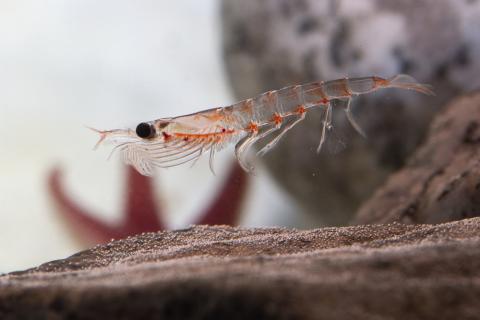
Is Omega 3 Demand Killing Antarctic Life
Omega Oil Supplements are some of the most popular today found on the shelves of health food stores. Full of omega three and omega six, these oils are no longer looked at as fats to avoid, as we have realized oils have a pivotal role in health is in regulating inflammatory responses and cell membrane function. We now know we need these good oils in our diets to be healthy!
While there are plant-based sources, much of the supplementation you will find on the shelves is in the form of fish oil, with one million tons being produced every year from fish such as cod, sardine and more recently the new favorite of the health industry is krill oil.
Over the last five years, the annual krill catch has jumped from just more than 100,000 tons to several million tons per year because with new technologies they can literally vacuum them up from the Antarctic Ocean at unprecedented rates.
Krill is a tiny crustacean, like a shrimp, and it forms part of the plankton level in our oceans. It can be hard to get emotionally moved to save such an “unlovable” species — but its survival is imperative to the survival of the entire ecosystem of the Southern Ocean. As a keystone species at the bottom of the food chain, huge numbers of other Antarctic species — whether they eat krill or not — are directly or indirectly affected by how abundant krill are.
The Southern Ocean mammals and seabirds that many more people can connect with and do want to protect, who are directly relying on krill for food include whales, seals, albatross, and penguins. If we overfish krill, we put them at risk too. It is a very serious question you need to ask yourself next time you are popping your krill oil supplement; is it worth risking the seals for? Is it worth risking the penguins and whales for?
Even though many health companies do attempt to make sure they obtain the krill in from “sustainable” companies, the existing data on krill abundance, reproduction, and population variables are limited as it is a relatively new industry. And, unfortunately, when we look at other fisheries that do have historical data to work with, the consistent trend is still overfishing to the point of near or total collapse of fishing stocks.
These Antarctic animals are already vulnerable to climate change as polar regions are suffering first and the fastest with temperatures rising 2.5 degrees Celsius in the last 50 years and sea ice cover rapidly dwindling around the Antarctic Peninsula. Adding extra pressure by fishing out ginormous amounts of the very basis of the food web is a seriously crazy move.
